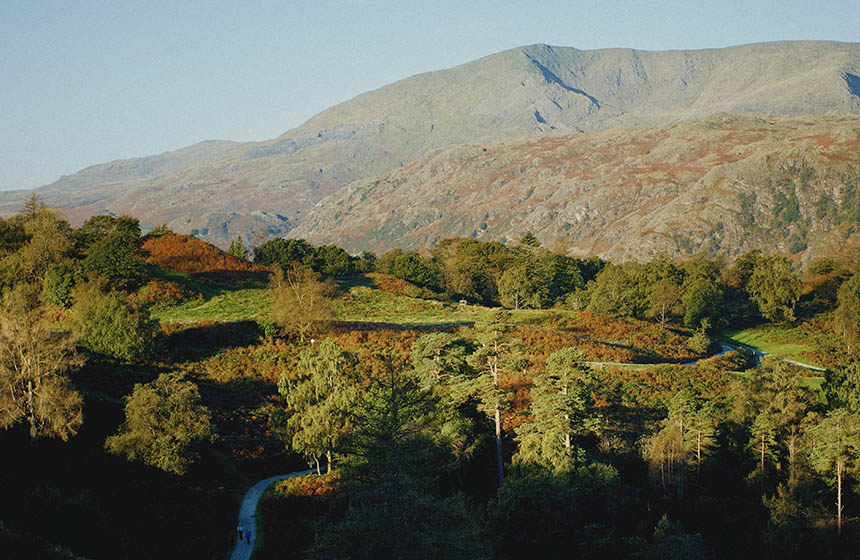Nature-based solutions across landscapes for climate change mitigation
Natural England announced funding for six study projects which would utilize nature restoration for carbon sequestration methodologies and each cover an area of greater than 500 hectares.
Nature-based Intervention:
Natural England has worked with entities across the country to establish pilot sites for the implementation and evaluation of six different types of nature-based solution. Each of the projects has goals for both nature regeneration and carbon sequestration while being adapted to the local contexts. The six pilot projects are the Wild Exmoor Carbon Sequestration Project, the Wansbeck Restoration for Climate Change, the Plymouth’s Natural Grid Nature Based Solutions for Climate Change at the Landscape Scale project, the Derwent Forest Landscape Recovery Project, the Oxfordshire–Buckinghamshire Freshwater Network and the Severn Solutions for Nature’s Recovery. Each of these 6 projects helps to investigate a different ecosystem or challenges related to the implementation of nature-based solutions. One of the core goals of this research is to then discover how diverse landscapes such as nature-rich woodlands, grasslands, wetlands and urban habitats take up and store carbon.
Overview of context and outcomes:
The government has reported that the information from the pilot sites will be used to better inform habitat creation and contribute to tackling climate change across England. This information could be critical to help inform the creation of new carbon codes, similar to the already existing Woodland Carbon Code and the Peatland Code. This project will occur as Natural England also assess the biodiversity and carbon outcomes of previous restoration projects they have conducted.
Case effectiveness on
Climate change
All of these projects are designed with carbon mitigation outcomes in mind, and more specifically want to see how these outcomes change in different habitat types. Some of these interventions will focus on reforestation, whilst others will look at freshwater, urban, and farmland systems in order to see how interventions can work to improve the landscapes carbon mitigation potential.
The Derwent Forest Landscape Recovery Project specifically is focused on the impacts of climate change on species movements. They are working to create corridors which will allow species to move between regions in response to climate change.
Ecosystem health
Ecological effect: PositiveThe projects interventions have reportedly targeted habitat diversity and extent in an effort to help restore key natural landscapes.
Socioeconomic outcomes
These pilot projects are a way to help understand investments into nature-based solutions within the United Kingdom and the results could reportedly be utilized to help better understand the value of these investments moving foreword.
Governance
Nature Based Solutions for Climate Change at the Landscape Scale project is a partnership led by Natural England with the Environment Agency, the Forestry Commission and Royal Botanic Gardens Kew at Wakehurst, Kew’s wild botanic garden in Sussex. The overarching funding and pilot project model is governed by Natural England, whilst the individual projects and their implementation is managed by the 6 separate entities which were awarded the funding.
Finance
Natural England announced that it would contribute £4.3 million of funding in order to support the projects. Within this Wild Exmoor Carbon Sequestration Project (National Trust) was awarded £962,084, Severn Solutions for Nature’s Recovery(Gloucestershire Wildlife Trust) has been awarded £417,205, the Oxfordshire–Buckinghamshire Freshwater Network has been awarded £788,004, Derwent Forest Landscape Recovery Project has been awarded £645,886, Plymouth’s Natural Grid project has been awarded £966,674 and Wansbeck Restoration for Climate Change (Groundwork NE & Cumbria) has been awarded £574,753.
Monitoring and evaluation
These projects are reported to have biodiversity and carbon monitoring efforts built into them in order to help generate a greater understanding of carbon balances within ecosystems across habitat. Researchers at Kew’s wild botanic garden, Wakehurst will study the role of broadleaf, coppiced and coniferous woodlands in building resilience to climate change across the trial sites. Drones will be utilized to measure plant biomass, while measurements will be done to track greenhouse gas fluxes. It is also reported that they will undertake soil fungal research to consider diverse habitats for carbon sequestration.
Trade-offs and limitations
No information yet available on tradeoffs.

Intervention type
- Management
- Restoration
Ecosystem type
- Other ecosystem type
Climate change impacts addressed
- Other climate impact
Instigators
- State/district/local government agency
- Local NGO or CBO (eg. indigenous)
- National government/agency
Societal challenges
- Biodiversity conservation
- Climate change adaptation
- Climate change mitigation
Outcomes
- Food security: Not reported
- Water security: Not reported
- Health: Not reported
- Local economics: Not reported
- Livelihoods/goods/basic needs: Not reported
- Energy security: Not reported
- Disaster risk reduction: Not reported
- Rights/empowerment/equality: Not reported
- Conflict and security: Not reported
- No. developmental outcomes reported: 2
Resources
Read resource 1Literature info
- Grey literature

